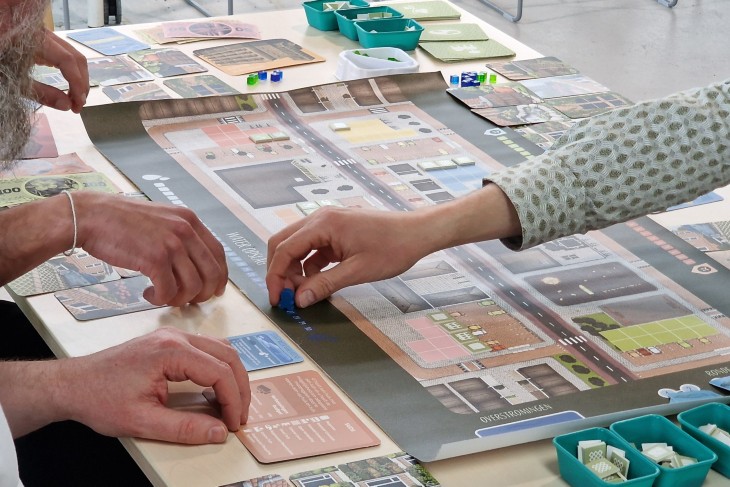 science ClimateKees Study: Can board games make us more climate resilient?What if preparing for climate change could be as simple as playing a game? Cities everywhere are dealing with flooding, but not everyone knows what they can do to help. Sustainable Drainage Systems (SuDS), like rain barrels and green roofs, could make a huge difference. But how do you educate people about them? My name is Kees, and I am participating in experiments to learn more about the research at the University of Twente. In this Kees Study, I participated in the research of Dr. Carissa Champlin from the Urban and Regional Planning department at ITC.
science ClimateKees Study: Can board games make us more climate resilient?What if preparing for climate change could be as simple as playing a game? Cities everywhere are dealing with flooding, but not everyone knows what they can do to help. Sustainable Drainage Systems (SuDS), like rain barrels and green roofs, could make a huge difference. But how do you educate people about them? My name is Kees, and I am participating in experiments to learn more about the research at the University of Twente. In this Kees Study, I participated in the research of Dr. Carissa Champlin from the Urban and Regional Planning department at ITC.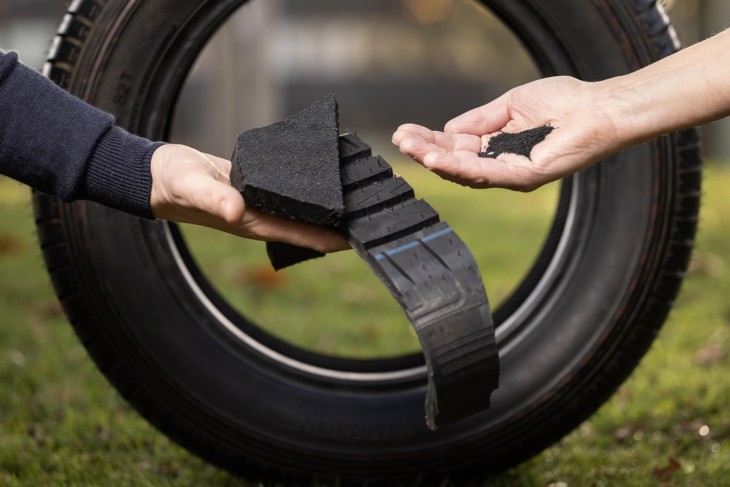 science ClimateWhy is rubber indispensable in our daily lives?From the tyres that keep our cars safely on the road to the soles of our shoes that provide comfort with every step – rubber is everywhere. But what makes this material so essential to our daily lives? In this story, we delve into the world of rubber alongside Professor Dr Anke Blume, an expert in elastomer technology at the University of Twente, to understand its many uses and why it matters so much.
science ClimateWhy is rubber indispensable in our daily lives?From the tyres that keep our cars safely on the road to the soles of our shoes that provide comfort with every step – rubber is everywhere. But what makes this material so essential to our daily lives? In this story, we delve into the world of rubber alongside Professor Dr Anke Blume, an expert in elastomer technology at the University of Twente, to understand its many uses and why it matters so much.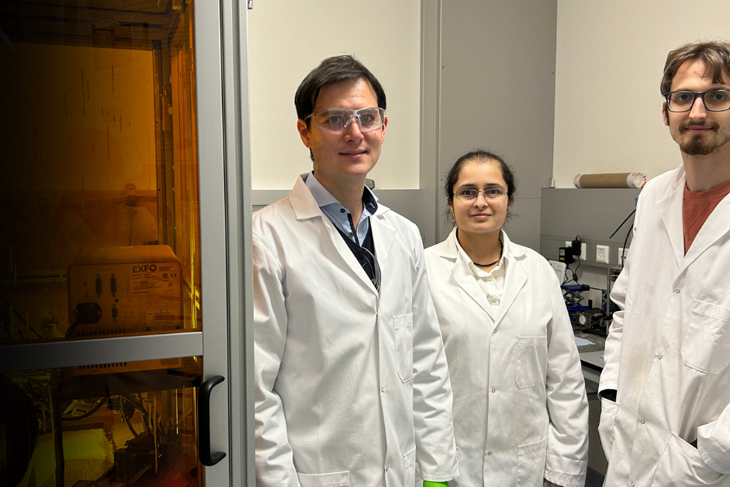 science Circular EconomyFrom bubbles to business: how FoamPrint3D is making the foam industry sustainableFoam is everywhere around us, even though we often don’t notice it. Think of the cushioning in your headphones, the seat of your desk chair, your car seat, and even your shoes. However, that also means a lot of foam ends up in landfills, and production dramatically impacts the environment.
science Circular EconomyFrom bubbles to business: how FoamPrint3D is making the foam industry sustainableFoam is everywhere around us, even though we often don’t notice it. Think of the cushioning in your headphones, the seat of your desk chair, your car seat, and even your shoes. However, that also means a lot of foam ends up in landfills, and production dramatically impacts the environment.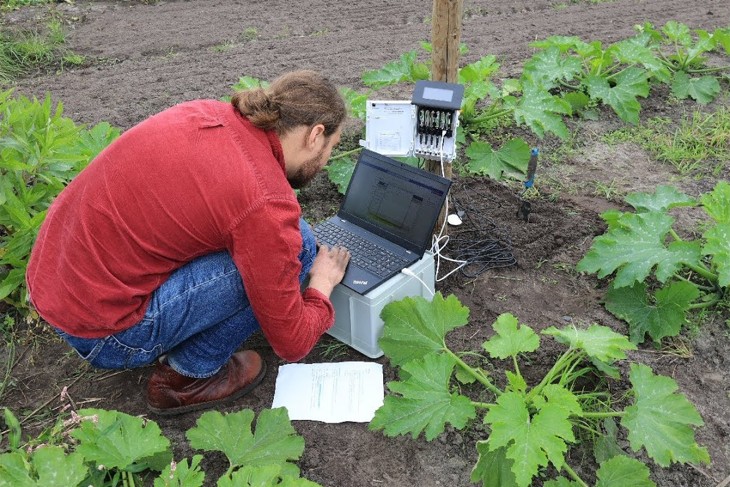 science Circular EconomyIs this the farm of tomorrow?At Citizen Farm Herenboeren Usseler Es, farmers are exploring how data can help them adapt to climate change challenges, such as unpredictable weather and longer growing seasons. Researchers from the University of Twente are helping by providing them with more precise data for better-informed farming decisions. The goal is to enhance local food production while offering valuable insights for farms around the world.
science Circular EconomyIs this the farm of tomorrow?At Citizen Farm Herenboeren Usseler Es, farmers are exploring how data can help them adapt to climate change challenges, such as unpredictable weather and longer growing seasons. Researchers from the University of Twente are helping by providing them with more precise data for better-informed farming decisions. The goal is to enhance local food production while offering valuable insights for farms around the world.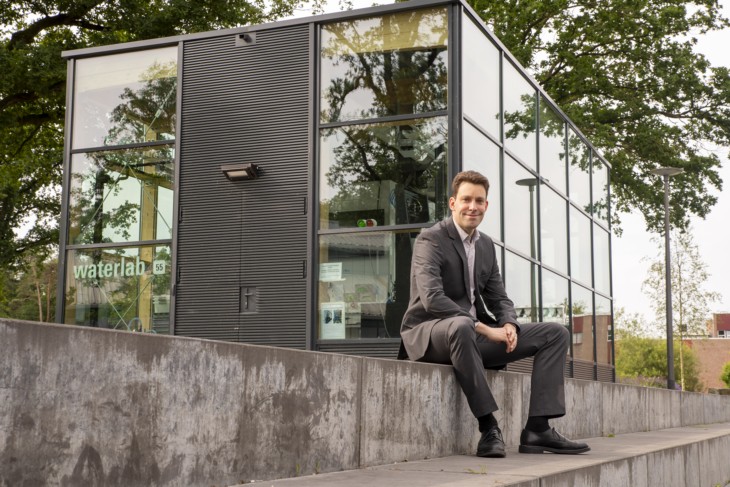 science TechnologyWater, water everywhere... and not a drop to drink: How the Netherlands keeps its drinking water safeThe Netherlands faces a water crisis: too much water, a shortage of water, agricultural fertilisers, and industrial pollution such as PFAS and medicine residues threaten our drinking water supply. Some new businesses are already denied drinking water connections; new residential areas may soon meet the same fate. It is crucial to invest in water technology for a sustainable future.
science TechnologyWater, water everywhere... and not a drop to drink: How the Netherlands keeps its drinking water safeThe Netherlands faces a water crisis: too much water, a shortage of water, agricultural fertilisers, and industrial pollution such as PFAS and medicine residues threaten our drinking water supply. Some new businesses are already denied drinking water connections; new residential areas may soon meet the same fate. It is crucial to invest in water technology for a sustainable future.
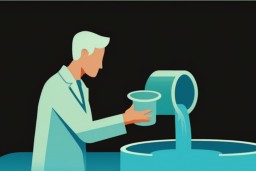 science Circular EconomyOur waste (water) is worth a lotImagine sipping your favourite beer from a cup made of sewage sludge. Researchers at the University of Twente are making it a reality. A team of Profs. Jeroen Cornelissen, Frederik Wurm, and Boelo Schuur are investigating a new process for converting waste materials into bioplastics with the help of bacteria that feed on what people discard daily.
science Circular EconomyOur waste (water) is worth a lotImagine sipping your favourite beer from a cup made of sewage sludge. Researchers at the University of Twente are making it a reality. A team of Profs. Jeroen Cornelissen, Frederik Wurm, and Boelo Schuur are investigating a new process for converting waste materials into bioplastics with the help of bacteria that feed on what people discard daily.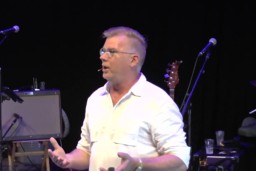 science Circular EconomyMini-lectures Zwarte Cross, episode 2: Beer cups and other plastics from sewage (video in Dutch)The Universitent at the Zwarte Cross, the largest festival in the Netherlands, has been a successful concept for years. In this summer series you can watch the mini-lectures again. In episode 2, Jeroen Cornelissen talks about the beer cups of the future.
science Circular EconomyMini-lectures Zwarte Cross, episode 2: Beer cups and other plastics from sewage (video in Dutch)The Universitent at the Zwarte Cross, the largest festival in the Netherlands, has been a successful concept for years. In this summer series you can watch the mini-lectures again. In episode 2, Jeroen Cornelissen talks about the beer cups of the future.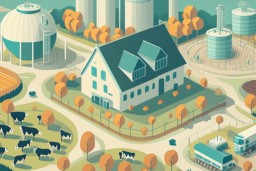 science Circular EconomyFrom waste to wealth: Overijssel’s Green RevolutionThe province of Overijssel is known for its robust agricultural and animal-farming activities. But the bustling livestock farms come with a cost. The animals produce an overwhelming amount of manure, leading to water pollution and harmful emissions. But what if this ‘waste’ could become a source of energy?
science Circular EconomyFrom waste to wealth: Overijssel’s Green RevolutionThe province of Overijssel is known for its robust agricultural and animal-farming activities. But the bustling livestock farms come with a cost. The animals produce an overwhelming amount of manure, leading to water pollution and harmful emissions. But what if this ‘waste’ could become a source of energy?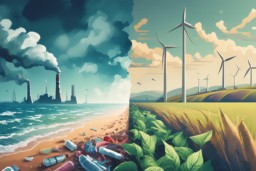 science Circular EconomyThe plastics dilemma: Are biodegradable plastics the answer?We are living in the Plastic Age, such is the ubiquity of plastics in our lives. The plastic waste in water ecosystems alone is expected to nearly triple from 11 million tonnes in 2016 to 29 million tonnes in 2040*. Biodegradable materials, such as polylactic acid, are seen as an alternative for use in packaging, agriculture, and medical devices. But how biodegradable are these materials in reality? Could they be the plastics of the future?
science Circular EconomyThe plastics dilemma: Are biodegradable plastics the answer?We are living in the Plastic Age, such is the ubiquity of plastics in our lives. The plastic waste in water ecosystems alone is expected to nearly triple from 11 million tonnes in 2016 to 29 million tonnes in 2040*. Biodegradable materials, such as polylactic acid, are seen as an alternative for use in packaging, agriculture, and medical devices. But how biodegradable are these materials in reality? Could they be the plastics of the future?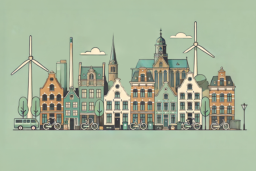 science Circular EconomyCircular Treasures: Shaping the future of historic buildingsJurjen Koopmans, a Civil Engineering & Management student at the University of Twente, is exploring the challenges of repurposing monumental buildings in his graduation project. He aims to develop a system that identifies and solves common problems in the design of these repurpositions, to ensure a sustainable future for Dutch heritage buildings.
science Circular EconomyCircular Treasures: Shaping the future of historic buildingsJurjen Koopmans, a Civil Engineering & Management student at the University of Twente, is exploring the challenges of repurposing monumental buildings in his graduation project. He aims to develop a system that identifies and solves common problems in the design of these repurpositions, to ensure a sustainable future for Dutch heritage buildings.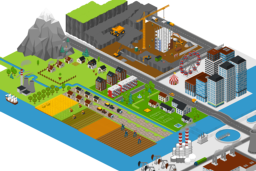 science Circular EconomyHow a Serious Game is Shaping Future LeadersUnsustainable development leads to resource scarcity and endangers our future. The traditional take-make-use-dispose in linear economy causes pressure on supply chains. The only way forward according to Devrim Yazan? A sustainable circular economy. But how do you educate students about the complexity of this sustainability approach?
science Circular EconomyHow a Serious Game is Shaping Future LeadersUnsustainable development leads to resource scarcity and endangers our future. The traditional take-make-use-dispose in linear economy causes pressure on supply chains. The only way forward according to Devrim Yazan? A sustainable circular economy. But how do you educate students about the complexity of this sustainability approach?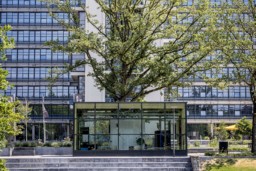 science ClimateThis glass laboratory could be the key to unlimited clean drinking waterA looming shortage of clean drinking water is screaming for innovations in water treatment. The Waterlab of the Membrane Science and Technology cluster gives an insight into possible solutions.
science ClimateThis glass laboratory could be the key to unlimited clean drinking waterA looming shortage of clean drinking water is screaming for innovations in water treatment. The Waterlab of the Membrane Science and Technology cluster gives an insight into possible solutions.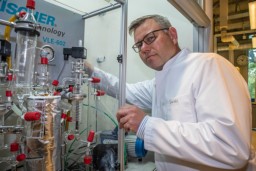 science Circular EconomyBreaking down waste and building it up like legoFor years, we've diligently sorted our waste, but a significant portion of the waste stream remains (yet) unrecyclable. The University of Twente, in collaboration with companies, is researching how to create new products from complex and 'wet' waste streams. This involves efficiently isolating chemical components used in new materials. The multi-year project ReBBloCS - Renewable Building Blocks from Complex and Wet Waste - began last year with a subsidy of €3.8 million from the Netherlands Enterprise Agency.
science Circular EconomyBreaking down waste and building it up like legoFor years, we've diligently sorted our waste, but a significant portion of the waste stream remains (yet) unrecyclable. The University of Twente, in collaboration with companies, is researching how to create new products from complex and 'wet' waste streams. This involves efficiently isolating chemical components used in new materials. The multi-year project ReBBloCS - Renewable Building Blocks from Complex and Wet Waste - began last year with a subsidy of €3.8 million from the Netherlands Enterprise Agency.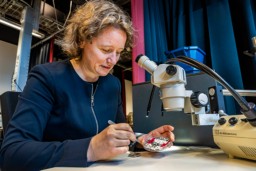 science Circular EconomyFrom potato to candyThe waste from potatoes as a source for candy, vegan cheese or other food products. Thanks to UT researcher Sissi de Beer, also director of the Applied Physics programme, it will be possible. She develops innovative separation technologies that are much less harmful to our environment. Sissi and her team received a substantial research grant from NWO a few years ago and the first significant results are now being achieved.
science Circular EconomyFrom potato to candyThe waste from potatoes as a source for candy, vegan cheese or other food products. Thanks to UT researcher Sissi de Beer, also director of the Applied Physics programme, it will be possible. She develops innovative separation technologies that are much less harmful to our environment. Sissi and her team received a substantial research grant from NWO a few years ago and the first significant results are now being achieved.